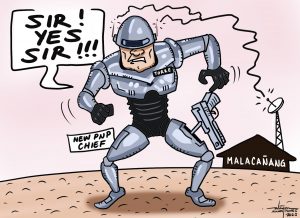On May 1, 2020, the 2019 amendments to the Rules of Civil Procedure will take effect and what is a bit worrisome to me is the fact that there seems to be no loud buzz about it in legal circles.
I mean, I teach the subject and I’m worried about coping with the added work required by these rules and I’m wondering why the legal community does not appear to be similarly perturbed. Am I making much ado about nothing?
There is a lot to prepare for although the added work required by the rules at the start of legal proceedings in a case should effectively make the trial stage much easier. In other words, the amendments seek to legislate procrastination out of lawyers.
As a concrete example, a Complaint used to strictly require only the statement of the “ultimate facts” of the cause of action or, in layman’s terms, only the bare facts stating whatever is being complained about without embellishments or arguments. Evidentiary facts are not supposed to be included in the Complaint. These would come later, during the pre-trial and trial of the case.
Under the new rules, the Complaint should already include a list of the documents and other evidence, as well as the witnesses who will be presented. In fact, a summary of the testimony of these witnesses is already required and even the judicial affidavits containing their basic testimony, and the documents and other evidence relied upon, need to be attached to the Complaint.
The same is true for the Answers to these Complaints which is why the period to file an Answer has been increased from fifteen (15) to thirty (30) days although I am unsure if even this will be enough.
This change alone will already be very burdensome for lawyers since they will have to interview all their witnesses and be ready with all the evidence even before filing their pleadings. Again, this will make it difficult at the start but will lessen the necessary work later on.
Another radical innovation is that the new rules already allow the filing and service of pleadings and other papers, not only via registered mail, but also through accredited couriers and even via e-mail in equipped courts as may be authorized by the Supreme Court.
I found it a little funny though that the Supreme Court also included “facsimile transmission” or fax machines, a fast dying technology, as an allowed mode of service.
I laughed because I remembered a client who once sent me a fax but what came out of the machine was the image of a closed mailing envelope addressed to me (fax machines were new then and he apparently thought to maintain privacy by putting the letter in an envelope before putting it through the machine). I also remember receiving a text message from a client who wanted me to know that he sent me a fax by texting “ATTY FAX YOU”… and, of course, I replied with “THANKS, FAX YOU TOO”.
Another important change is the provision that when a lawyer signs a pleading he warrants that he knows or believes, after a reasonable inquiry that, among others, the pleading “is not being presented for any improper purpose, such as to harass, cause unnecessary delay, or needlessly increase the cost of litigation” and the rules even include the process for immediate sanctions if otherwise is shown.
There are a lot more changes introduced but it will probably take a lengthy lecture to discuss them all.
The new rules are intended to speed things up and prevent delays in civil cases. I hope they work, although I still believe that we need more courts, more competent judges and more resort to alternative modes of dispute resolution.
I wish luck and Godspeed for the implementation of the new rules. Good luck to the judges, good luck to the lawyers, and a whole lot of good luck to those who have not even read the new rules or, worse, do not even know they exist.

